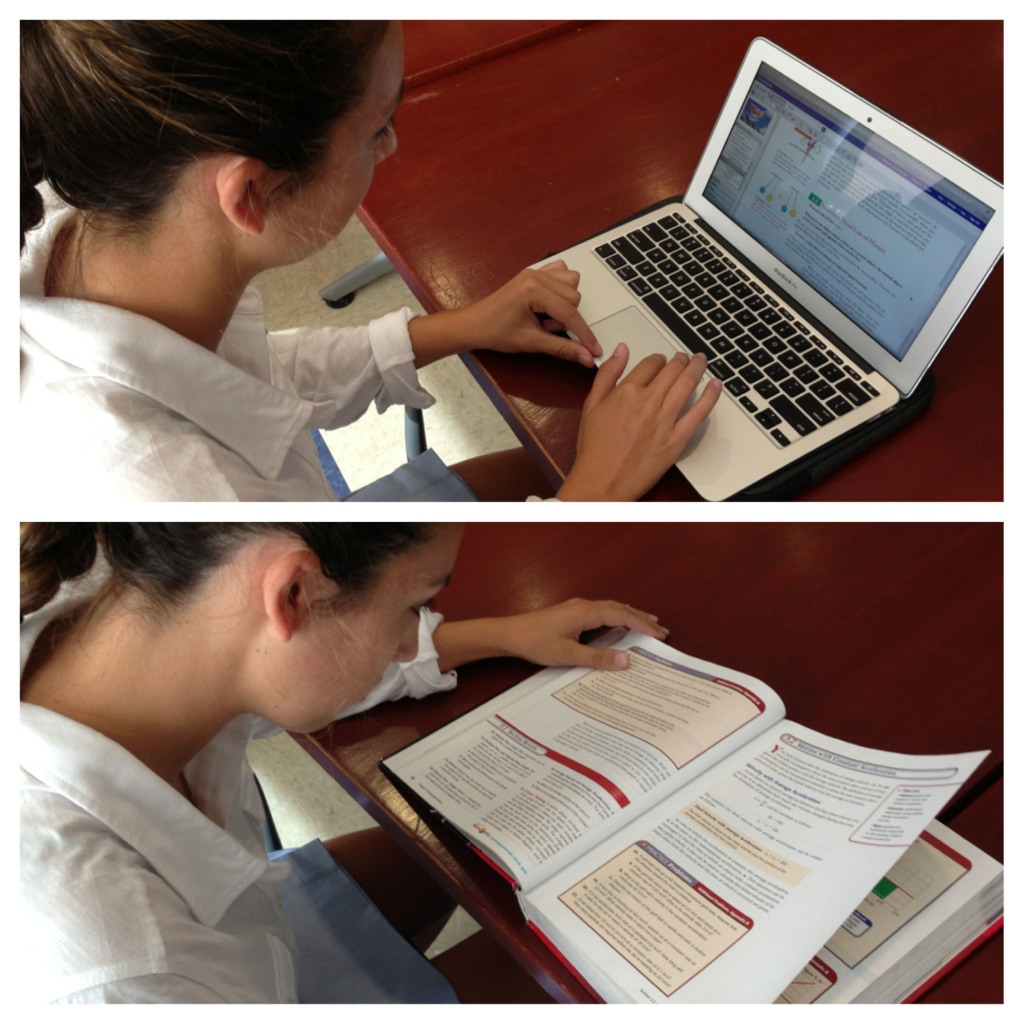Alec Frey ’16: There is no doubt to the ease of use that comes with an e-book. With a few simple flicks or clicks of the finger, you can be reading any of your favorite books on your smartphone, tablet, or computer for nearly half the cost of a paper book. However, the use of e-books begs the question of whether or not they are as cognitively effective and as generally preferred as paper books.
Studies by the periodical journal Scientific American have shown that people often understand and remember text on paper better than on a screen. Screens, especially ones as small as smartphones, inhibit comprehension and prevent people from being able to connect the different parts of a story. Additionally, reading on a screen is more mentally and physically taxing than reading on paper. Reading on an LCD screen puts excessive staring on the eyes and often causes headaches by shining light directly onto people’s faces. Most notably, aside from the potential health dangers of reading on a screen, is the fact that most e-readers nowadays are more than just e-readers. Whether it is a Facebook notification or incoming email, there are many disturbances that can pop up across the screen. Many other apps and options that are available on e-readers can become distracting to the user, adding to the inability to comprehend and remember what one is reading. E-books hinder comprehension and memorability, while distracting the reader and adding strain to the eyes and head.

Photo Courtesty of Claire Smith ’16
Paper books on the other hand are the objects of haptic perception. Haptic perception is the process of recognizing objects through touch. Paper books over time have become so ingrained in our brains that even the feel of a book can provoke memories. Everyone knows what its like to pick up a heavy book, feel the hard cardboard cover, and flip through the crisp pages; it is a nostalgic sensation. E-books, unfortunately, cannot provide this impression on people. Reading only e-books from an early age can even lead to haptic dissonance, or the inability to process a certain feeling of touch. In addition, paper books have health benefits associated with them that e-books do not. For instance, understanding the entire text and context is easier with paper books than e-books because when looking at an opened paper book the reader is observing eight distinct corners and two pages, whereas an e-book has only one page and four corners. This may not seem important at first glance, but the proportions of a paper book instill better focus and orientation in the reader, a very important aspect of both haptic perception and textual comprehension.
There is nothing easier than going on an iPhone, opening the iBooks app, and purchasing whatever book one wants in an instant. In comparison, going to the bookstore or waiting for books to arrive in the mail may seem relatively inconvenient However, the sensation of holding a paper book, of looking and feeling something truly tangible, is irreplaceable. For as easy as accessing an e-book is, there is nothing quite like reading a paper book.